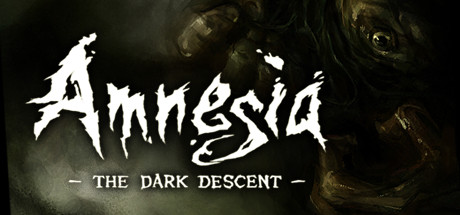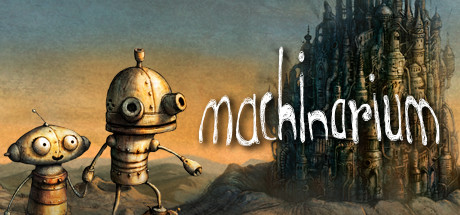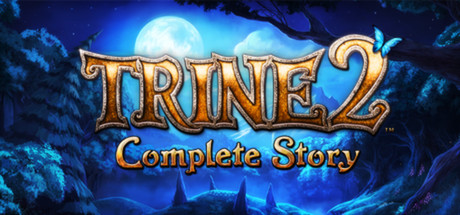
59
Players in Game
8 464 😀
152 😒
95,08%
Rating
$17.99
The Case of the Golden Idol Reviews
A new kind of detective game that allows you to think and investigate freely. Discover clues surrounding 12 strange and gruesome deaths and build your own theory. Pick your suspect, deduce the motive, unmask the awful truth.
| App ID | 1677770 |
| App Type | GAME |
| Developers | Color Gray Games |
| Publishers | Playstack |
| Categories | Single-player, Steam Achievements, Steam Cloud, Full controller support, Steam Trading Cards |
| Genres | Indie, Adventure |
| Release Date | 13 Oct, 2022 |
| Platforms | Windows, Mac |
| Supported Languages | English |

8 616 Total Reviews
8 464 Positive Reviews
152 Negative Reviews
Overwhelmingly Positive Score
The Case of the Golden Idol has garnered a total of 8 616 reviews, with 8 464 positive reviews and 152 negative reviews, resulting in a ‘Overwhelmingly Positive’ overall score.
Reviews Chart
Chart above illustrates the trend of feedback for The Case of the Golden Idol over time, showcasing the dynamic changes in player opinions as new updates and features have been introduced. This visual representation helps to understand the game's reception and how it has evolved.
Recent Steam Reviews
This section displays the 10 most recent Steam reviews for the game, showcasing a mix of player experiences and sentiments. Each review summary includes the total playtime along with the number of thumbs-up and thumbs-down reactions, clearly indicating the community's feedback
Playtime:
830 minutes
Wow. The game was exactly what I needed. Slow paced gameplay with a charming music accompanied with great obscure graphics results in a interesting and intriguing story which I've swallowed in a few days. I recommend this game!
👍 : 0 |
😃 : 0
Positive
Playtime:
708 minutes
Excellent game!
I loved solving every single chapter and the DLCs, and the chapters are connected in such a well-crafted way, you understand more and more things the more you complete the game. And at the end it just hits you entirely and you can't help but go back to each chapter one by one and see many details you missed the first time!
👍 : 0 |
😃 : 0
Positive
Playtime:
1227 minutes
Insane game! You don't know what's happening until you do, and everything starts to make sense
👍 : 0 |
😃 : 0
Positive
Playtime:
1317 minutes
The Case of the Golden Idol is a captivating puzzle and detective game developed by Color Gray Games that skillfully blends logic, observation, and storytelling into a uniquely satisfying mystery-solving experience. Set in a richly detailed 18th-century-inspired world, the game invites players to unravel a series of interlinked cases centered around the enigmatic death of the titular Golden Idol. What immediately sets this game apart is its innovative approach to narrative and deduction: rather than following a linear story, players piece together fragmented scenes from different perspectives, using careful observation and logical inference to connect clues, motives, and timelines. This non-linear, almost forensic method of storytelling demands patience, attention to detail, and critical thinking, making every solved case feel like a genuine intellectual achievement.
At the heart of The Case of the Golden Idol is its meticulous design in environmental storytelling. Each scene is a static, highly detailed diorama filled with characters, objects, and subtle visual hints. The art style is reminiscent of classical paintings combined with pixel art charm, creating an atmosphere that feels both timeless and immersive. Players must zoom in, scrutinize every character’s expression, posture, and interactions, and analyze the placement of objects to uncover hidden truths. There are no explicit instructions on what to look for; instead, the game encourages players to think like a true detective, forming hypotheses and testing them against the evidence presented. This makes the puzzle-solving deeply engaging and rewarding, as players feel empowered by their own deductive reasoning rather than relying on trial and error.
Mechanically, the gameplay is centered around connecting pieces of evidence and narrative threads across multiple cases. Unlike traditional point-and-click adventures or visual novels, the interface is minimalist and intuitive, focusing on selecting clues and linking them in a logical chain to reveal the culprit and motive. This abstraction keeps the gameplay clean and focused, removing unnecessary distractions and encouraging pure deduction. However, the complexity of the puzzles steadily increases, and some later cases require a high level of attention and the ability to synthesize information from disparate sources. The game strikes a delicate balance between challenge and accessibility, rewarding both casual players and those who relish deep, cerebral puzzles.
Narratively, The Case of the Golden Idol excels by weaving a tapestry of interconnected stories rather than presenting a single straightforward plot. Each case feels like a puzzle piece in a larger mystery, gradually revealing the political intrigue, personal vendettas, and social dynamics of its world. The characters, though presented through static scenes, come to life through their actions, relationships, and the clues they leave behind. The writing is subtle and clever, often hinting at deeper themes of greed, betrayal, and justice beneath the surface. This layered storytelling encourages players to reflect on the motives and morality of each character, enhancing the emotional impact of the revelations.
Visually, the game’s pixel-art aesthetic is stunning in its detail and composition. The developers’ choice to use rich, painterly colors and intricate scene designs elevates the typical pixel-art style into something more evocative and atmospheric. Every frame is densely packed with visual information, encouraging multiple viewings and careful study. The soundtrack complements this ambiance perfectly, with a subtle and haunting score that supports the contemplative mood without overwhelming the senses. Sound effects are sparse but effective, focusing the player’s attention squarely on the visuals and the puzzles.
Despite its many strengths, The Case of the Golden Idol can sometimes feel intimidating due to its unconventional approach and lack of explicit guidance. Some puzzles require leaps of logic that might frustrate players who prefer more straightforward clues or those unfamiliar with deductive gameplay. The absence of a hint system means players must rely heavily on their own reasoning or external resources, which may limit its appeal to a broader audience. Additionally, the static nature of scenes might not appeal to those seeking more dynamic or action-driven gameplay. However, for players who appreciate slow-burn mysteries and cerebral challenges, these design choices are precisely what make the game so compelling.
In conclusion, The Case of the Golden Idol is a masterclass in minimalist yet rich puzzle design, marrying intricate visual storytelling with challenging detective work. It stands out in the puzzle genre by encouraging players to become true investigators, piecing together fragmented narratives through sharp observation and logic rather than handholding. The game’s art style, atmosphere, and interwoven stories create an unforgettable experience that rewards patience, intellect, and curiosity. For fans of mystery and cerebral gaming, it offers a fresh and deeply satisfying journey into the art of deduction.
Rating: 9/10
👍 : 2 |
😃 : 0
Positive
Playtime:
994 minutes
This game is fantastic one of a kind puzzle game, highly recommend, creative storyline and definitely worth my money.
👍 : 1 |
😃 : 0
Positive
Playtime:
439 minutes
One Truth Prevails! This was a fantastic game with memorable characters, art, and a great soundtrack. If you think about things logically, you can figure everything out. All the clues are there in the game. Going back to other chapters is very helpful.
There's no flashing lights in the game and you don't need sound in case you're hearing impaired.
👍 : 1 |
😃 : 0
Positive
Playtime:
251 minutes
Very clever and fun game, but unfortunately quite short. Play the demo first to see how much you'll enjoy your time with the game. I feel it was worth the full price, but unless you really like logical deduction games you may want to wait for a sale.
👍 : 1 |
😃 : 0
Positive
Playtime:
953 minutes
this is one of the best investigation/mystery/puzzle games I've ever played. It starts off fairly simple and has a solid difficulty curve but it never holds your hand. Even if you choose to look at the hints, they really are only hints. They don't give you the answer and sometimes are barely enough to get you moving in the right direction.
If you can beat the entire game and the DLC without using any hints and without guessing blindly at any point you should look into a career in crime scene investigation. Very rewarding game.
👍 : 2 |
😃 : 0
Positive
Playtime:
861 minutes
The Case of the Golden Idol is a detective game with though puzzles and a story with conspiracy and a surprising humor.
This game will challenge your attention to detail, and I love this game for doing exactly that.
Although the game is short, it made for an unique and intriguing experience.
👍 : 3 |
😃 : 1
Positive
Playtime:
420 minutes
[h2][i]The Case of the Golden Idol[/i] is a deduction detective game that hooked me quickly with its gameplay mechanics but eventually let me down with its story.[/h2]
Twelve murders across four acts. A timespan of fifty years. An 18th-century aristocratic family and a golden idol. A minimal narrative, but you will receive clues through letters, notes, characters’ possessions and quirks. With all the facts in hand, it’s up to you to figure out whether this is the [i]case[/i] of the golden idol or… the [i]curse[/i] of the golden idol. (Mostly through whodunit, of course.)
[u]A lukewarm 5 out of 10 from me, unfortunately.[/u]
I’ve gone back and forth on my rating for this game a lot. I really enjoyed the first two acts, when the gameplay mechanics still felt fresh and the world of the game very new. I was intrigued by the game’s many mysteries – certain characters that kept popping up, the titular golden idol – which were presented to me quite cleverly through the murders I was solving.
However, by the third act, the novelty of the gameplay was wearing off and a certain [spoiler]cult-y[/spoiler] subplot started to take more and more of the center stage. My enjoyment plummeted heavily at that point. I did not like where the game ended up. I felt that it rather weakly explored its central themes and point that it eventually tried to make. By the end I was phoning it in without care.
That does not take away that many people have loved this game. If you like the gameplay, this might still be the detective game for you.
[h1][b]Pros[/b][/h1]
+ Puzzles are fully deduction / logic based
+ Lots of ‘hidden’ details that even further support your conclusions
+ Out of 12 murders, at least 7 also felt like great ‘standalone’ mysteries
[h1][b]Neutrals[/b][/h1]
~ The art style is an acquired taste but fits the eerie vibes
~ DLCs have less cases but harder puzzles
~ Plays well on the Steam Deck
[h1][b]Cons[/b][/h1]
- The ending of the story as well as the exploration of its themes were unsatisfying
- No clue organization
- Lacks polish (grammatical errors, missing audio cues, strange click zones)
I feel like [i]The Case of the Golden Idol[/i]’s strongest feature is its gameplay.
You are presented with static scenes of a murder – sometimes multiple, so you can explore a setting a bit – and get to hunt for clues. You’ll gather words from letters, books or other items that you automatically collect. Once you have all available words for a case, you can attempt to solve the murder by using these words to fill out the case’s ‘scroll’ that narrates exactly what happened.
You can also apply your deductive reasoning here – the game categorizes the words you find by names, nouns, and verbs. These have different colors in the scroll, so you can already guess a little which might go where and use that to lead your investigation.
While you investigate, certain optional puzzles might pop up in your ‘task bar’ that you can help you fill out the scroll as well. For example, assigning a first and a last name to every person present at the scene. Or work out who sat where at the dinner table.
It’s a very satisfying system, and one I hadn’t encountered before. However, as cases get longer and more complex (more words!), it becomes a lot more annoying to work with. There’s no collection of your evidence; you’ll have to retrace everything to where you found it if you want to re-examine it to double-check. I also never understood why first and last names need to be separated, making it needlessly finnicky.
[spoiler]There is ONE instance in the ENTIRE game where a character changes their last name due to marriage. ONE. Do you know how many times I had to fill out everyone’s first and last name perfectly just for that ONE, SILLY time it mattered??[/spoiler]
As for the story, the game presents itself in a very ‘flat’ way. You are shown murders, often in medias res, which you solve by looking for the facts. Whether you solve them or not has no influence on the story. There are no arrests or consequences. You are not really an 18th century detective – you are an observer [i]outside[/i] of the game who is shown a certain larger story through a string of crimes across fifty years.
This type of presentation does not have to be a problem at all. I actually very much enjoyed that fresh take at the start of the game. My problem with it, however, was the distance I felt from the narrative as well as the characters. When I figured out where the story was going, I did not find anything interesting or emotionally compelling enough to keep enjoying my experience.
There are so many layers to this world and story – politics, colonialism, power, thinly-veiled real world allegories of empires and mercantile operations – and yet the game does so little with it. Then why is it there, with such attention to those details? Why all this effort to show the connection that runs through every single murder (DLCs included) without engaging further or deeper with the themes you’re using for worldbuilding?
In certain ways, the game seems very aware of these themes, and in others it does not. [spoiler]Creating an alt-England called ‘Albion’ which eventually becomes fascist seems on point. But what is the point of using Sri Lanka as the base for ‘Lanka’? To still portray Albion’s colonialism? In which ways? To show that colonial powers send over one man who singlehandedly fucks up Lanka’s politics and gets away with murder? That’s not really what colonialism is, is it?
A fake civilization is used as the origin of the golden idol – Lemuria. But the Lemurians are then portrayed as native hippies living in a commune, all wearing the same drab grey clothes and living in primitive villages. They also very much DO NOT understand their own ancient technology (ouch).[/spoiler]
There is certainly a point being made at the end of the game, which I get. But it is not particularly engaging nor is it satisfying. And it also happens fully off-screen, just to give us another mystery to solve.
(Also, just to clarify: I do not require my detective games to have a strong thematic conclusion or point to make! It’s just that in this game, a certain setting has been chosen multiple times over, just as certain clues and plot points are chosen over and over. All serve to create a world and a thematic framework. Neither of which are engaged with properly, I feel.)
Anyway, those are my highs and lows with [i]The Case of the Golden Idol[/i], and why I ultimately chose not to recommend it. I do think a lot of people can and will still enjoy it, so don’t let my review deter you from trying it out. I can only hope I can offer a bit of a different opinion amongst the sea of Overwhelmingly Positive ratings.
👍 : 7 |
😃 : 0
Negative







